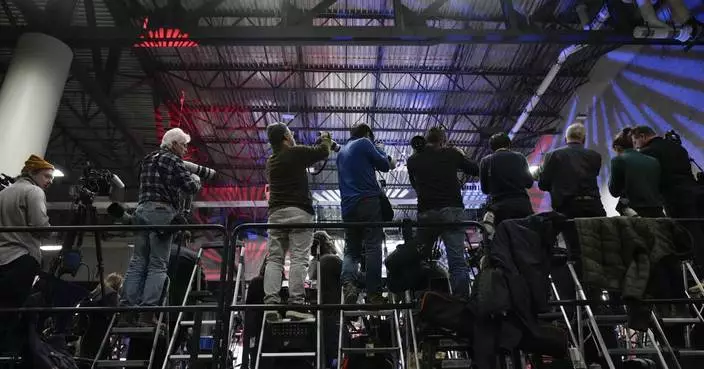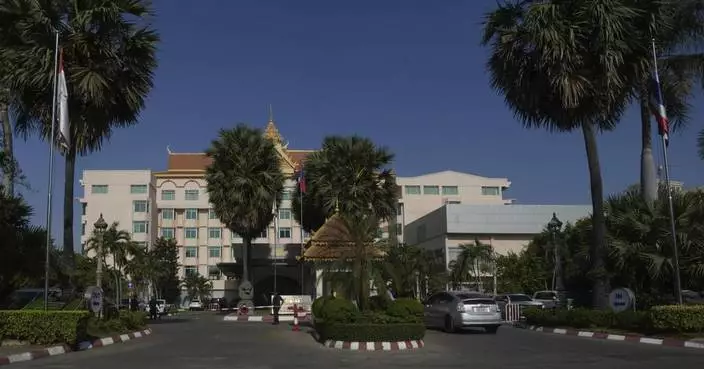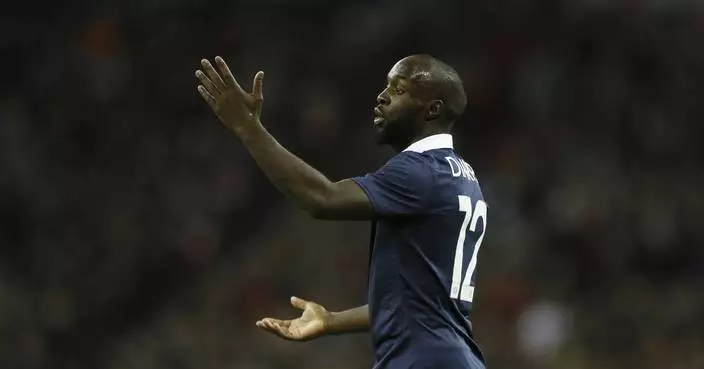Italy's Premier Giuseppe Conte will appear in the Senate on Tuesday to deliver a much anticipated address about the political crisis that has erupted in the middle of the summer break.
The political showdown was triggered two weeks ago by hard-line Interior Minister Matteo Salvini — known across Europe for his tough stance against migrants — when he pulled the plug on the shaky populist coalition forged only 14 months earlier between his right-wing League and the anti-establishment 5-Star Movement.
Salvini wants to capitalize on a surge in support — polls show the League at 38 percent — and push Italy to early elections. But his political gamble may not produce the desired result. There are a number of possible scenarios in which a new government could be formed without Italians heading back to the polls.
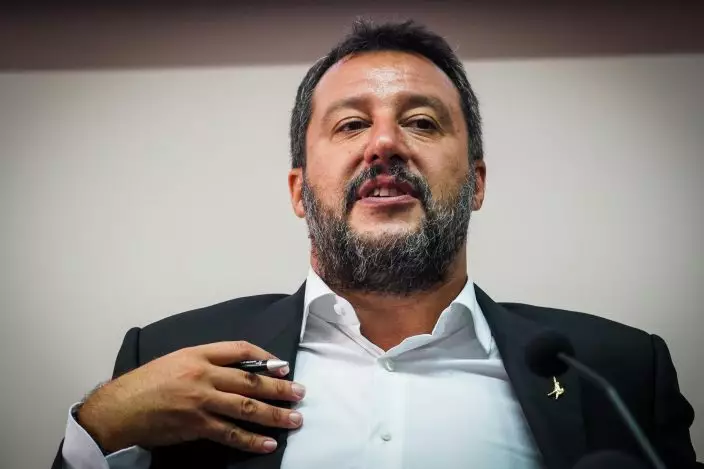
Italian Deputy Prime Minister and Interior Minister Matteo Salvini meets the journalists at the end of a security conference in Castel Volturno, southern Italy, Thursday, Aug. 15, 2019. (Cesare AbbateANSA Via AP)
WHAT WILL HAPPEN TUESDAY?
Conte in his speech to the Senate is expected to blast Salvini for bringing about the crisis, and after that he may announce his resignation. Even if he doesn't do that immediately, barring a last-minute patch-up between Salvini and 5-Star leader Luigi Di Maio, the governing coalition Conte was asked to lead no longer exists, so he will eventually have to face a confidence vote and resign.
That puts the ball in the court of President Sergio Mattarella, who will be expected to quickly start consultations with party leaders to explore possible alternative coalitions.
To complicate matters, this is happening just ahead of talks on a difficult budget law that could trigger a new confrontation between Italy and the European Union over deficit targets. The 2020 budget has to line up financial resources worth 23 billion euros to avert a massive VAT hike that risks plunging Italy into a new recession. It needs approval from parliament by year-end, after being submitted to the European Commission in mid-October.
As rival party leaders keep negotiating to isolate Salvini and thwart his bid for power, Mattarella is faced with various scenarios.
THE ODD COUPLE
Earlier this month, the League failed to win support in the Senate for a confidence motion against Conte as the 5-Stars joined forces with the opposition Democratic Party and smaller left-wing groups to freeze it. That move appeared to have caught Salvini off-guard and showed that an alliance between the 5-Stars and the Democratic Party — traditionally bitter rivals — isn't impossible.
In theory, the two parties could form a new government with the support of the smaller parties that helped them block the no-confidence motion. However, both would face stiff opposition from within their own ranks.
Some leading Democrats, including former Premier Matteo Renzi, say a partnership with the 5-Stars is the only way to save Italy from a Salvini-led government. But others, including current leader Nicola Zingaretti, fear it could seriously damage the party in the next parliamentary elections. Critics also worry that Renzi's proposal hides a plan to regain power and then found his own political group.
THE URSULA OPTION
Some political analysts have suggested a stronger government could be forged through a grand coalition between the left, the 5-Stars and Forza Italia — the shrinking center-right party led by 82-year-old Silvio Berlusconi.
That scenario is known in Italian political circles as the "Ursula" option, because it would bring together the Italian parties that joined forces to back German politician Ursula von der Leyen to become the next president of the European Commission. Salvini's party voted against her.
Backers of the "Ursula" scenario include former Commission President Romano Prodi, who has said it would have more long-term potential than a 5-Star and Democratic tie-up.
A CARETAKER GOVERNMENT
If coalition talks fail, Mattarella could still ask the main parties to form a caretaker government. Such a plan would likely include the same forces as a grand coalition, but with a shorter time-span.
A caretaker government — possibly headed by a politically neutral figure or by Conte himself — would be in charge of delivering the new budget. That remains a challenging option for any party, as approving tough economic measures ahead of possible elections may eventually favor the League.
Analysts believe that a caretaker government or a grand coalition would be "market friendly" scenarios, as they would sooth investor worries over a League-dominated budget that would likely spark a new row with Brussels.
NEW ELECTIONS
If no viable alternative to the current government emerges, the president will have no choice but to call new elections, possibly as soon as late October.
That's the scenario that Salvini wants, because it could make him prime minister. Judging by recent polls, his League could win more than 50 percent of the vote in a right-wing alliance with Forza Italia and the far-right Brothers of Italy.
Salvini has accused his opponents of doing everything possible to avoid new elections in a "desperate" attempt to cling on to their seats in Parliament.
BEIRUT (AP) — The European Union announced Thursday an aid package for Lebanon of 1 billion euros — about $1.06 billion — much of which will go to boost border control to halt the flow of asylum seekers and migrants from the small, crisis-wracked country across the Mediterranean Sea to Cyprus and Italy.
The deal follows other EU aid packages for countries such as Egypt, Tunisia and Mauritania to fortify their borders. It comes against a backdrop of increasing hostility toward Syrian refugees in Lebanon and a major surge in irregular migration of Syrian refugees from Lebanon to Cyprus.
European Union Commission President Ursula von der Leyen said during a Beirut visit with Cypriot President Nikos Christodoulides that the aid distribution will start this year and last till 2027.
The bulk of the aid — 736 million euros — would go to support Syrian refugees “and other vulnerable groups” in Lebanon, while 200 million euros are meant to bolster Lebanese security services in enforcing border and migration control, according to figures provided by the Cypriot government.
An unspecified amount would go to Lebanese fishermen, to discourage them from selling their boats to smugglers.
Von der Leyen said the EU will also work on a “more structured approach to voluntary return" of Syrian refugees "in close cooperation with” the U.N. refugee agency. The bloc will continue to maintain “legal pathways” for resettlement of refugees in Europe, she said.
Lebanon's caretaker Prime Minister Najib Mikati praised the package, saying that “Lebanon’s security is security for European countries and vice versa,” and that an escalation of the crisis ”will not be limited to Lebanon but will extend to Europe."
Lebanon, which has been in the throes of a severe financial crisis since 2019, hosts nearly 780,000 registered Syrian refugees and hundreds of thousands more who are unregistered, the world's highest refugee population per capita.
Lebanese political officials have for years urged the international community to resettle the refugees in other countries or assist their return to Syria — voluntarily or not. Lebanese security forces have stepped up deportations of Syrians over the past year.
Tensions further flared after an official with the Christian nationalist Lebanese Forces party, Pascal Suleiman, was killed last month in what military officials said was a botched carjacking by a Syrian gang. The incident prompted outbreaks of anti-Syrian violence by vigilante groups.
Meanwhile, Cypriot authorities complain the island nation has been overwhelmed by irregular migration of Syrian asylum seekers, many of them coming on boats from Lebanon.
The UNHCR in Lebanon said it had verified 59 “actual or attempted” departures by boats carrying a total of 3,191 passengers from Lebanon between January and mid-April, compared to three documented boat movements carrying 54 passengers in the same period last year. Usually, few boats attempt the much more dangerous crossing in the winter. In all of 2023, UNHCR recorded 65 boat departures carrying 3,927 passengers.
Cyprus has taken a new approach to halting the flow of migrants. Last month, it suspended processing of Syrian asylum applications, and human rights groups accused the Cypriot coast guard of forcibly turning back five boats carrying about 500 asylum seekers coming from Lebanon. Cypriot officials have denied this.
Bassel al-Shayoukh, a Syrian refugee from Idlib living in Lebanon since 2014, said his brother and several cousins and nephews were on one of the boats turned back. Now he wants to make the journey himself.
“In the beginning I thought that in a year or two the war would be over in Syria,” he said, but it dragged on, while in Lebanon “every year ... the situation began to get worse.”
Shayoukh said he fears being beaten by vigilantes or deported to Syria after Lebanese authorities declined to renew his residency permit.
His 17-year-old nephew, who declined to give his name fearing for his safety, said the Cypriot coast guard started making waves to push the boat he was on away. “I was terrified... I don’t know how to swim,” he said. “I thought we were going to die.”
The people on the boats “stayed three days without food or water” before turning back to Lebanon, the teen added.
Back in Lebanon, they were detained by the army; those registered with UNHCR were released and the others deported.
Mohammed Sablouh, a Lebanese human rights lawyer who works on refugee and migrant cases, says Lebanese authorities are deliberately “turning a blind eye" to the surge in migration to "pressure the international community.”
The Lebanese army did not respond to a request for comment on their measures to combat smuggling.
Thursday's aid announcement comes ahead of the annual fundraising conference for the Syrian crisis in Brussels later this month. After 13 years of civil war, donor fatigue has set in while the world’s attention is occupied by the humanitarian fallout of more recent conflicts in Ukraine and Gaza.
The Cypriot president said Thursday was a “historic day” and called for European officials to go farther and declare some areas of Syria safe for return.
“The current situation is not sustainable for Lebanon. It is not sustainable for Cyprus, it is not sustainable for the European Union,” Christodoulides said.
But not all Lebanese officials are convinced the European aid would solve the problem.
Lebanese Forces party head Samir Geagea told The Associated Press earlier this week that European authorities are mainly concerned “that the refugees don’t go to Europe."
"For us the problem is that we cannot have our country drowning in illegal Syrian refugees,” Geagea said, urging for Syrians to be sent back to either government or opposition-held areas of the neighboring country.
But Shayoukh says he has nowhere to go.
The Damascus government wants him for opposing Syrian President Bashar Assad, he said, while the Islamist group that now controls his hometown behaves "the same way as the regime’s intelligence services” in crushing dissidents.
Associated Press writer Menelaos Hadjicostis in Nicosia, Cyprus, contributed to this report.
Follow AP’s global migration coverage at: https://apnews.com/hub/migration

Lebanese caretaker Prime Minister Najib Mikati, center, speaks during his meeting with Cyprus' President Nikos Christodoulides, left, and President of the European Commission Ursula von der Leyen at the government palace in Beirut, Lebanon, Thursday, May 2, 2024. (AP Photo/Hassan Ammar)
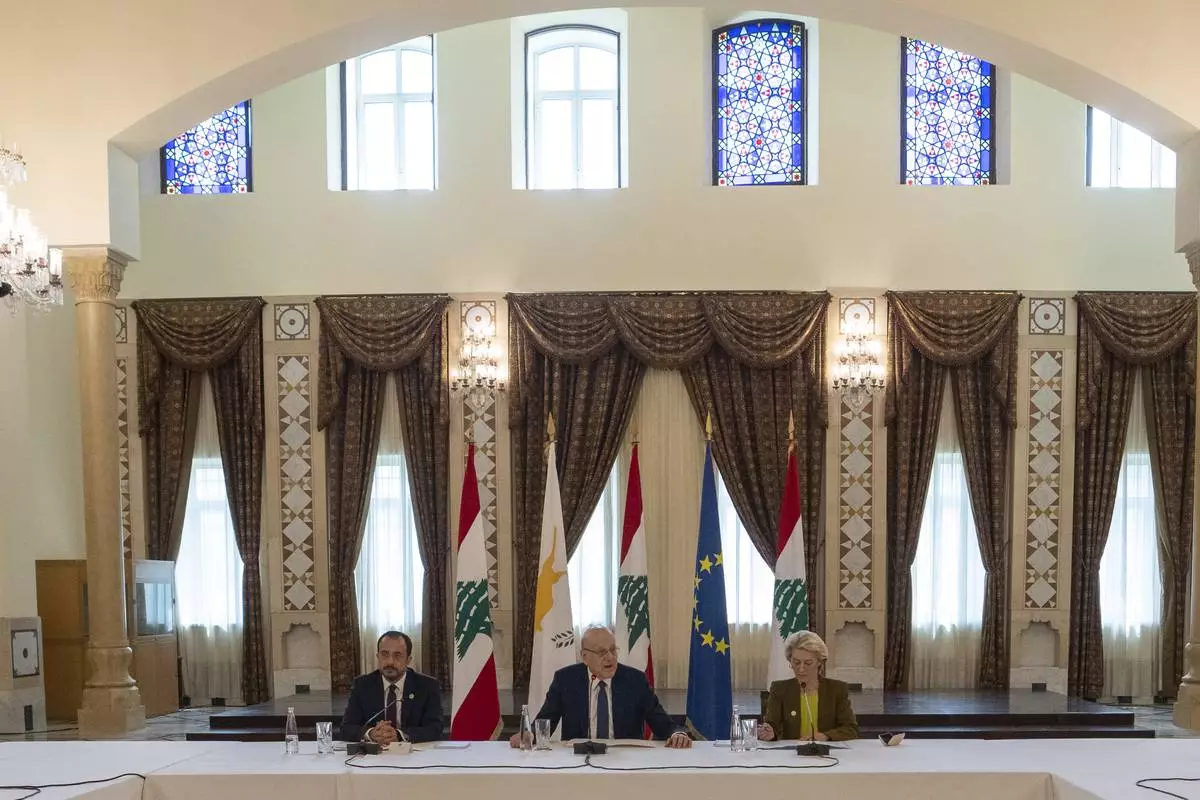
Lebanese caretaker Prime Minister Najib Mikati, center, speaks during his meeting with Cyprus' President Nikos Christodoulides, left, and President of the European Commission Ursula von der Leyen at the government palace in Beirut, Lebanon, Thursday, May 2, 2024. (AP Photo/Hassan Ammar)
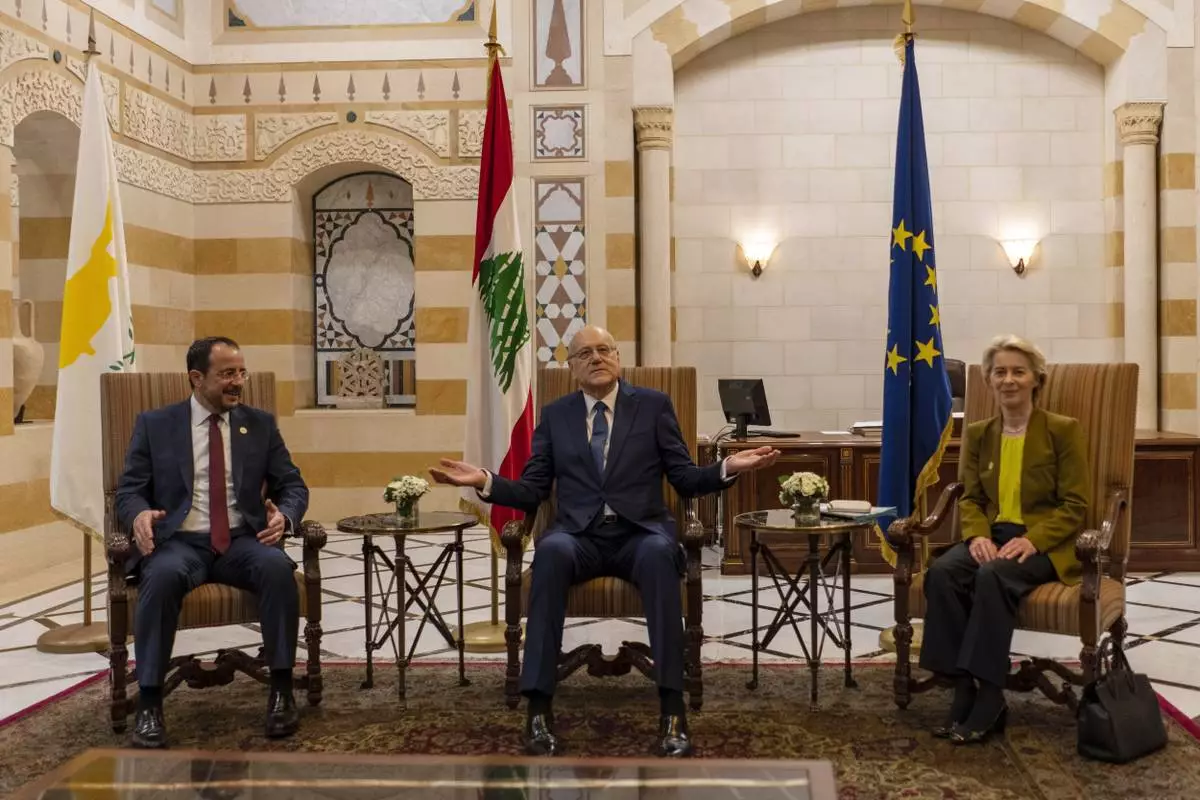
Lebanese caretaker Prime Minister Najib Mikati, center, welcomes Cyprus' president Nikos Christodoulides, left, and President of the European Commission Ursula von der Leyen before their meeting at the government palace in Beirut, Lebanon, Thursday, May 2, 2024. (AP Photo/Hassan Ammar)
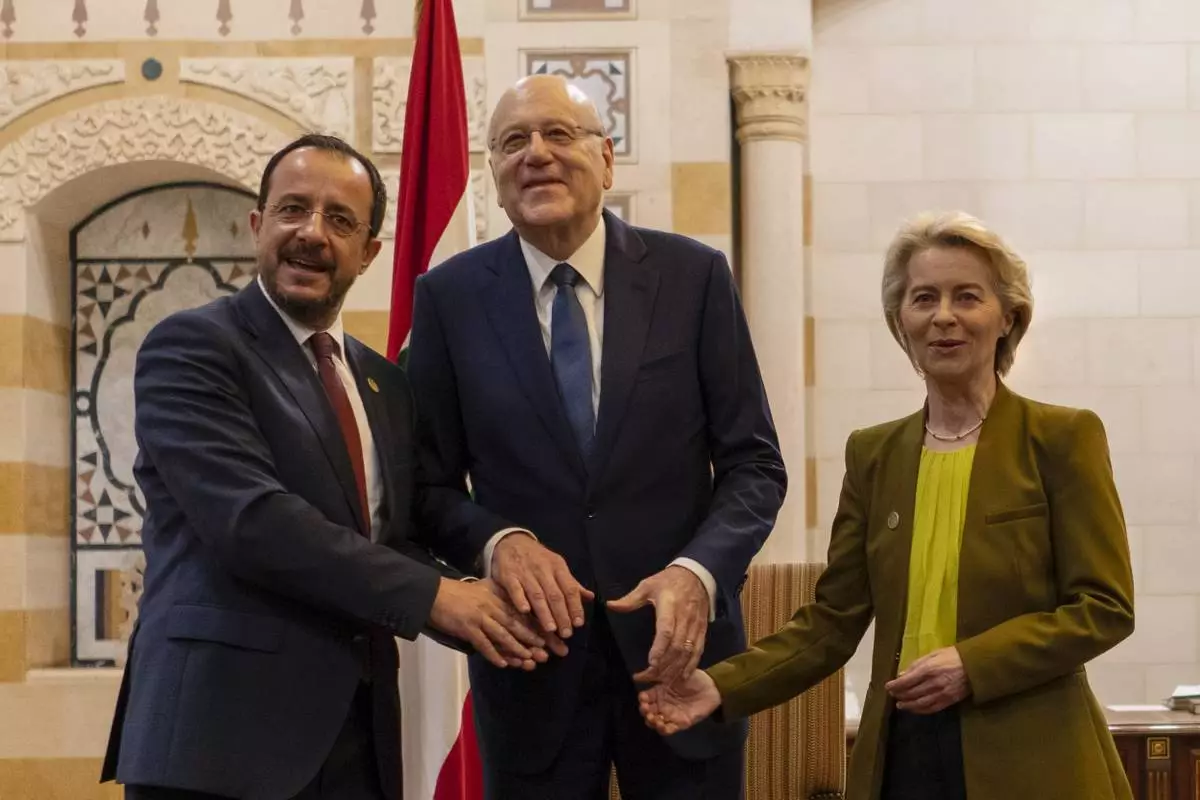
Lebanese caretaker Prime Minister Najib Mikati, center, Cyprus' President Nikos Christodoulides, left, and President of the European Commission Ursula von der Leyen pose for photograph at the government palace in Beirut, Lebanon, Thursday, May 2, 2024. (AP Photo/Hassan Ammar)
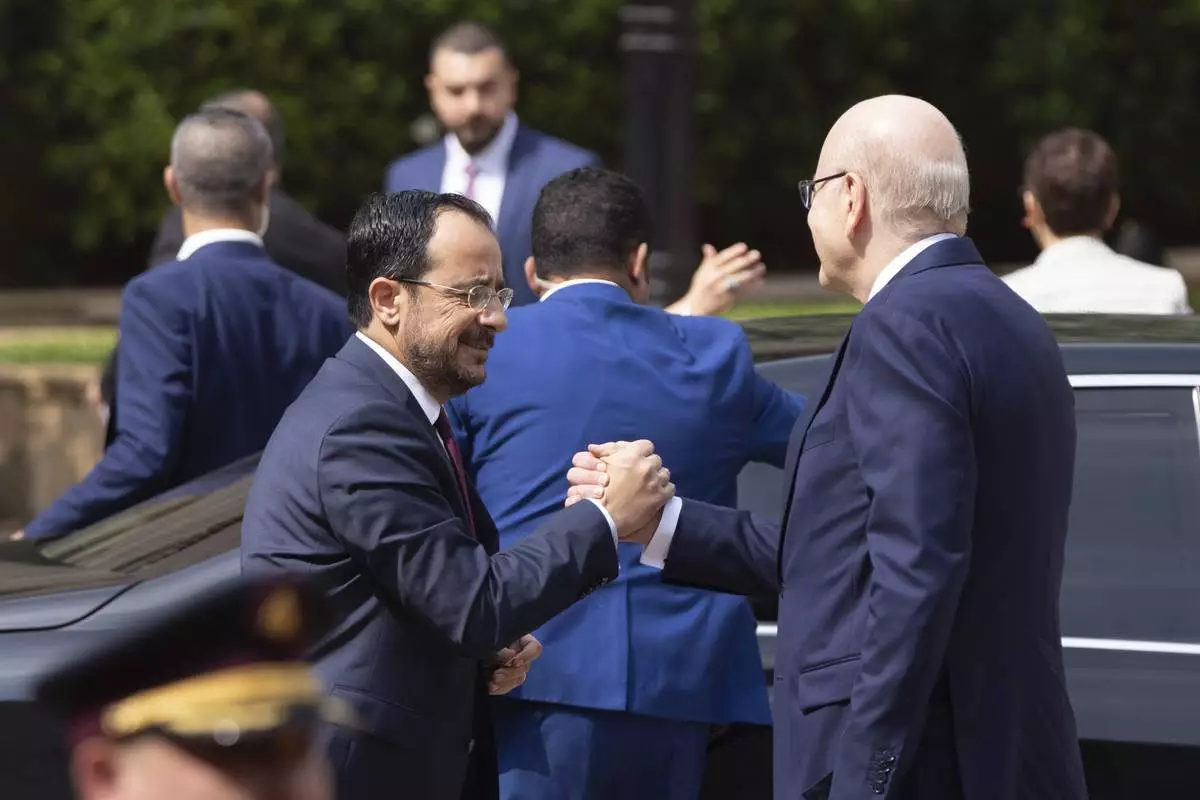
Lebanese caretaker Prime Minister Najib Mikati, right, welcomes Cyprus' president Nikos Christodoulides before their meeting at the government palace in Beirut, Lebanon, Thursday, May 2, 2024. (AP Photo/Hassan Ammar)

Cyprus' President Nikos Christodoulides, left, and President of the European Commission Ursula von der Leyen, center, review an honor guard upon their arrival to meet with the Lebanese Speaker Nabih Berri, in Beirut, Thursday, May 2, 2024. (AP Photo/Hussein Malla)

Lebanese caretaker Prime Minister Najib Mikati, center, speaks during his meeting with Cyprus' President Nikos Christodoulides, left, and President of the European Commission Ursula von der Leyen at the government palace in Beirut, Lebanon, Thursday, May 2, 2024. (AP Photo/Hassan Ammar)
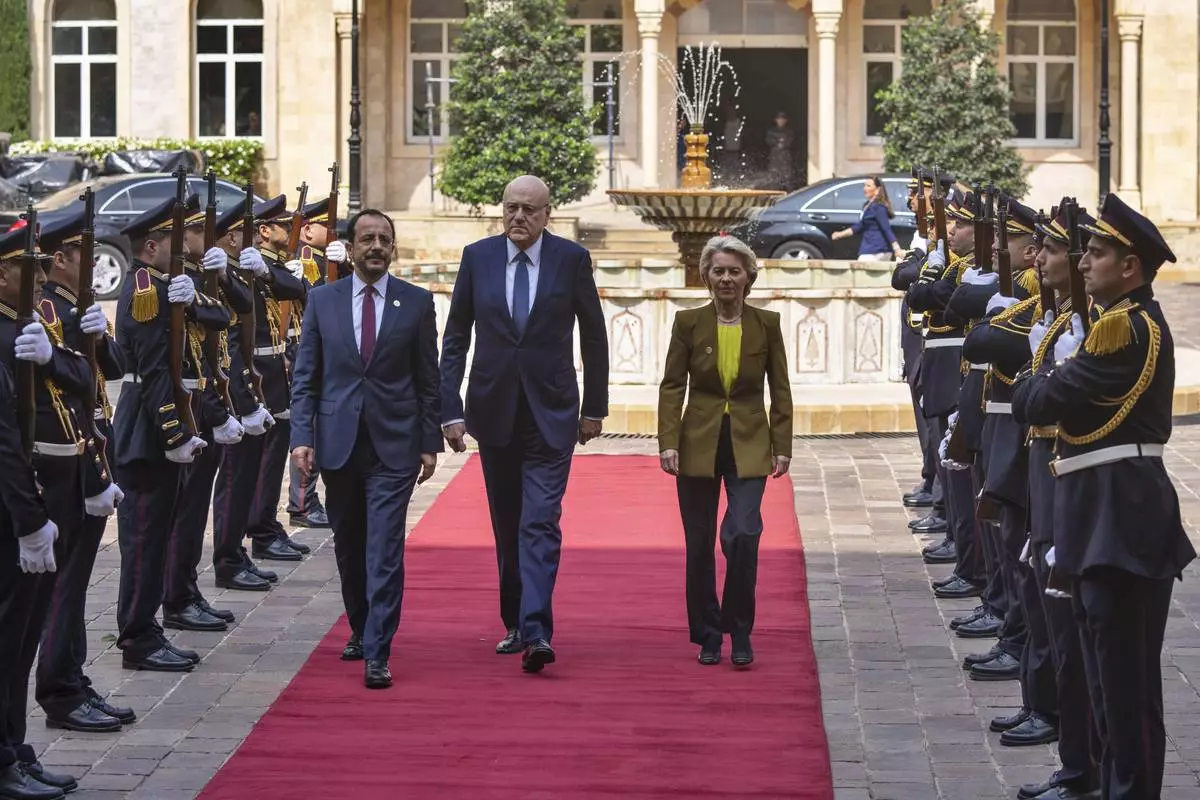
Lebanese caretaker Prime Minister Najib Mikati, center, welcomes Cyprus' President Nikos Christodoulides, left, and President of the European Commission Ursula von der Leyen at the government palace in Beirut, Lebanon, Thursday, May 2, 2024. (AP Photo/Hassan Ammar)












